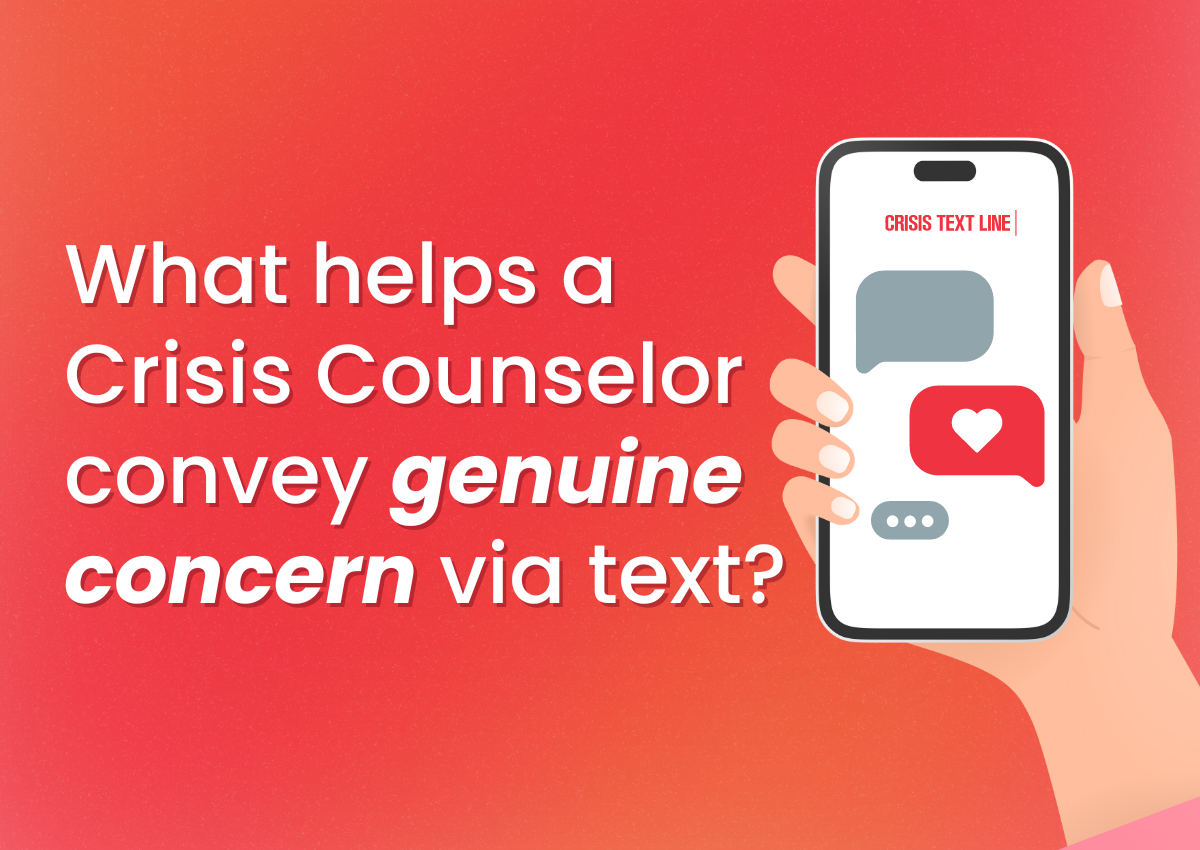Spotlight on Genuine Concern in Text-based Crisis Conversations

Machine learning worked to identify linguistic features that make crisis counselor texts feel genuine. We are a text-only service, and new machine learning methods allowed us to analyze over 57,000 de-identified conversations to learn about what makes text-based crisis counseling feel genuine. We tested several different machine learning models to determine which was best able to predict genuine concern ratings, including: Logistic Regression with Lasso; Random Forest; and XGBoost. As you might imagine, many of the features were correlated, so we used models that are able to handle correlated data. Results summarized below were presented at the 57th annual conference of the American Association of Suicidology in May, 2024.
Feeling that the crisis counselor genuinely cares for their wellbeing matters a lot to our texters. Our analyses indicate that when texters report feeling their crisis counselor was genuinely concerned for them:
- They are 10 times as likely to find the conversation helpful;
- They are 5 times as likely to say that they are less suicidal by the end of the conversation.
We looked for many aspects of the way crisis counselors texted: including
- word counts (is it better to be wordy or concise?),
- reading levels (does simpler language feel more genuine?),
- formal/informal tone (is it better to be formal or informal?),
- timing (what sounds more genuine: when you respond quickly or take more time?),
- emotional intensity, and also,
- the content of what people said.
Here are four lessons on what felt genuine to our texters.
- Match the texter as much as possible – in word count, reading level, formality, timing, and emotional intensity. If the texter is rapidly texting, rapid responses feel more genuine. If the texter is verbose, verbose responses feel more genuine. If they are terse, the crisis counselor should be brief. The same goes for formal/informal tone, reading level, and emotional intensity (how positive/negative the tone of the statements are).
- Use positive emotional language (but mix it up and match the texter). We found conversations where the crisis counselor’s statements had higher emotional valence were more likely to be rated as expressing genuine concern. This comes with important caveats: 1) It felt more genuine to texters when counselors had a more varied emotional charge of their messaging. 2) Here, too, matching the texter’s level of intensity was linked to higher perceptions of genuine concern.
- Avoid self-talk. The more counselors used first-person pronouns (“I” or “me”), the less likely the texters felt their concern was genuine.
- Don’t over-use templates. Templates help guide the work of our crisis counselors who often have to find the right thing to say under
pressure. Still, using these templates a lot was associated with lower ratings of genuine concern.
This analysis has important limitations. For example: there is a difference between what is statistically significant (everything above), and what is clinically meaningful and should be acted upon (not evaluated here). Also, language can be highly specific to someone’s demographic background, so we are planning to conduct more segmented analyses by demographics.
To learn more about our research and methodology, please email research@crisistextline.org.
For media requests, please reach out to Vanessa Showalter, Crisis Text Line’s Sr. Communications Director, at press@crisistextline.org.

